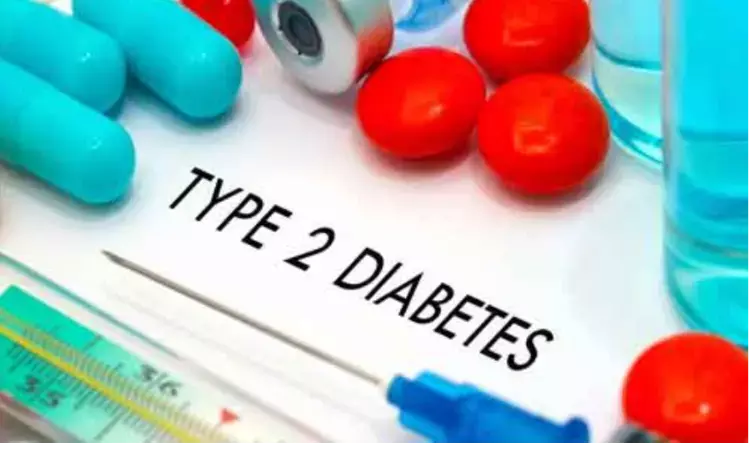- Home
- Medical news & Guidelines
- Anesthesiology
- Cardiology and CTVS
- Critical Care
- Dentistry
- Dermatology
- Diabetes and Endocrinology
- ENT
- Gastroenterology
- Medicine
- Nephrology
- Neurology
- Obstretics-Gynaecology
- Oncology
- Ophthalmology
- Orthopaedics
- Pediatrics-Neonatology
- Psychiatry
- Pulmonology
- Radiology
- Surgery
- Urology
- Laboratory Medicine
- Diet
- Nursing
- Paramedical
- Physiotherapy
- Health news
- Fact Check
- Bone Health Fact Check
- Brain Health Fact Check
- Cancer Related Fact Check
- Child Care Fact Check
- Dental and oral health fact check
- Diabetes and metabolic health fact check
- Diet and Nutrition Fact Check
- Eye and ENT Care Fact Check
- Fitness fact check
- Gut health fact check
- Heart health fact check
- Kidney health fact check
- Medical education fact check
- Men's health fact check
- Respiratory fact check
- Skin and hair care fact check
- Vaccine and Immunization fact check
- Women's health fact check
- AYUSH
- State News
- Andaman and Nicobar Islands
- Andhra Pradesh
- Arunachal Pradesh
- Assam
- Bihar
- Chandigarh
- Chattisgarh
- Dadra and Nagar Haveli
- Daman and Diu
- Delhi
- Goa
- Gujarat
- Haryana
- Himachal Pradesh
- Jammu & Kashmir
- Jharkhand
- Karnataka
- Kerala
- Ladakh
- Lakshadweep
- Madhya Pradesh
- Maharashtra
- Manipur
- Meghalaya
- Mizoram
- Nagaland
- Odisha
- Puducherry
- Punjab
- Rajasthan
- Sikkim
- Tamil Nadu
- Telangana
- Tripura
- Uttar Pradesh
- Uttrakhand
- West Bengal
- Medical Education
- Industry
Extremes of sleep time tied to increased mortality risk in Diabetes: Study

In people with type 2 diabetes, sleeping less or more than 7 h/day was associated with increased risk of all-cause and condition-specific mortality, according to a recent research published in the Diabetologia journal.
Diabetes is a worldwide public health crisis. Globally, the prevalence of diabetes was 8.8% in 2017, affecting an estimated 424.9 million people. This number is predicted to increase to 628.6 million by 2045.
Using data from the National Health Interview Survey (NHIS) in the USA, "We specifically sought to examine the relationship between sleep duration and all-cause and cause-specific mortality in people with type 2 diabetes across sex, age at diagnosis, duration of diabetes and treatment type", says Yafeng Wang, from the Department of Epidemiology and Biostatistics, School of Health Sciences, Wuhan University, Wuhan, China.
The study aimed to investigate whether the effects of sleep duration interacted with the presence of diabetes. Wang and his associates studied a total of 273,029 adults, including 248,817 without diabetes and 24,212 with type 2 diabetes, who participated in the National Health Interview Survey from 2004 to 2013 and whose data were linked to a mortality database up to 31 December 2015.
"In this population-based prospective cohort study, we observed that the absolute mortality rate was higher in adults with diabetes and extremes of sleep duration", he further added.
Extremes of sleep duration was associated with significant increases in all-cause and disease-specific mortality risk among people with type 2 diabetes.
The other findings of the research exclaimed that there was a non-significant interaction between sleep duration and the presence of diabetes. Also, a J-shaped relationship existed between sleep duration and all-cause mortality risk in people with type 2 diabetes.
Compared with the reference group (7 h/day), both shorter and longer sleep durations were associated with an increased risk of all-cause mortality. Similar associations were also observed for mortality risk from CVD, cancer, kidney disease, Alzheimer's disease, and chronic lower respiratory diseases.
Longer sleep duration in those with a younger age at diabetes onset was associated with greater risks of all-cause and CVD mortality. Shorter sleep duration in individuals treated with both insulin and oral glucose-lowering medication was also associated with higher risks of all-cause and CVD mortality, these were some of the other observations.
Based on the findings, the authors concluded that "The associations between sleep duration and mortality risk may be different between diabetic and non-diabetic individuals. The association was more prominent in those with a younger age at diabetes onset and receiving treatment with both oral glucose-lowering medication and insulin. This population may benefit from targeted sleep-related interventions to reduce the risks of adverse health outcomes."
Dr. Nandita Mohan is a practicing pediatric dentist with more than 5 years of clinical work experience. Along with this, she is equally interested in keeping herself up to date about the latest developments in the field of medicine and dentistry which is the driving force for her to be in association with Medical Dialogues. She also has her name attached with many publications; both national and international. She has pursued her BDS from Rajiv Gandhi University of Health Sciences, Bangalore and later went to enter her dream specialty (MDS) in the Department of Pedodontics and Preventive Dentistry from Pt. B.D. Sharma University of Health Sciences. Through all the years of experience, her core interest in learning something new has never stopped. She can be contacted at editorial@medicaldialogues.in. Contact no. 011-43720751
Dr Kamal Kant Kohli-MBBS, DTCD- a chest specialist with more than 30 years of practice and a flair for writing clinical articles, Dr Kamal Kant Kohli joined Medical Dialogues as a Chief Editor of Medical News. Besides writing articles, as an editor, he proofreads and verifies all the medical content published on Medical Dialogues including those coming from journals, studies,medical conferences,guidelines etc. Email: drkohli@medicaldialogues.in. Contact no. 011-43720751


